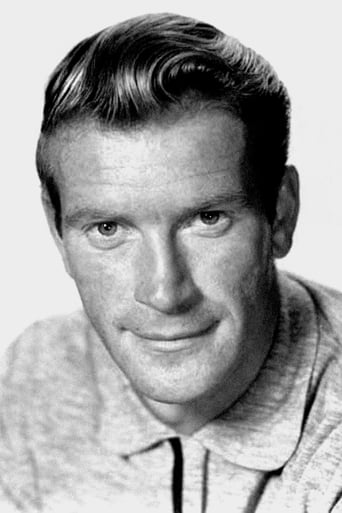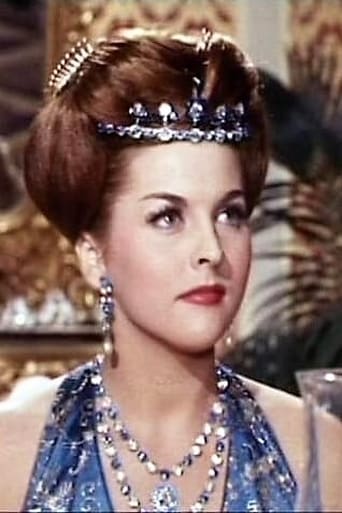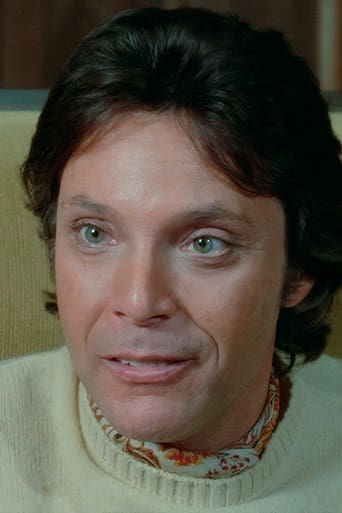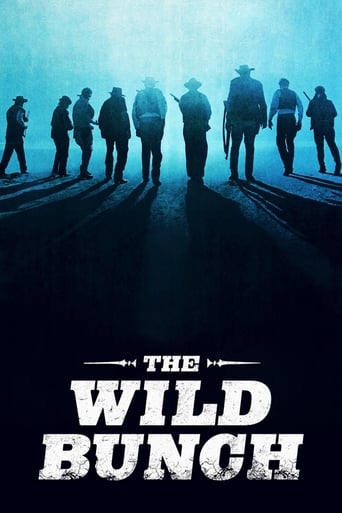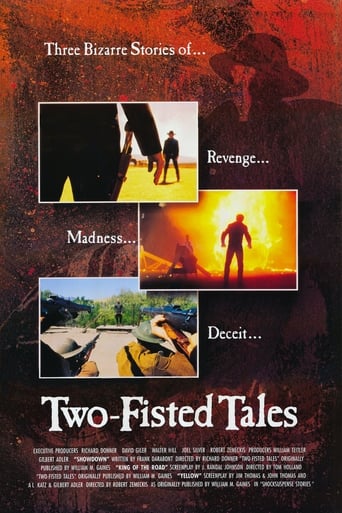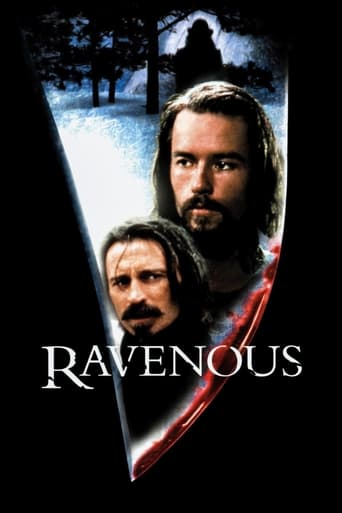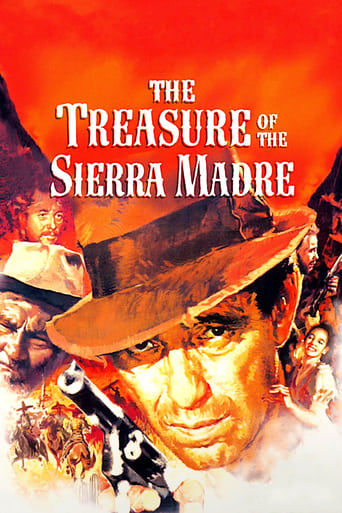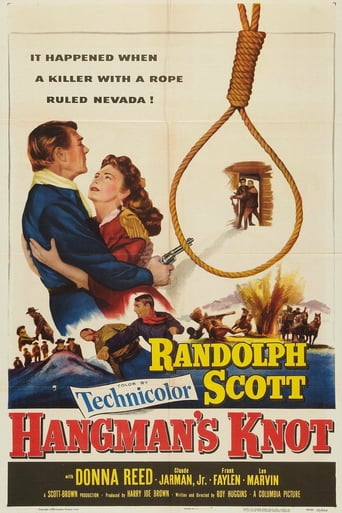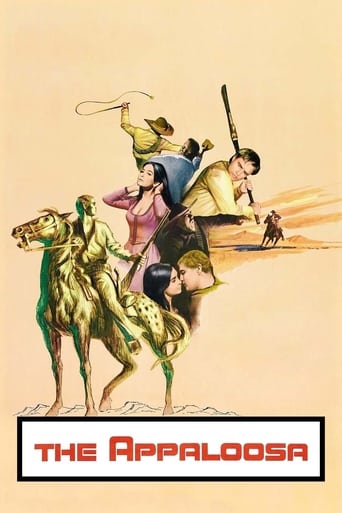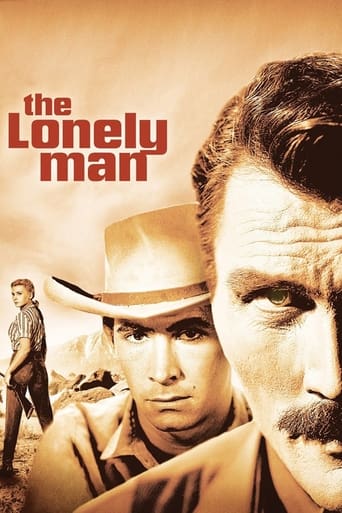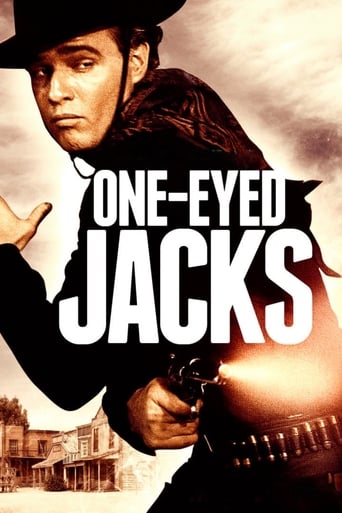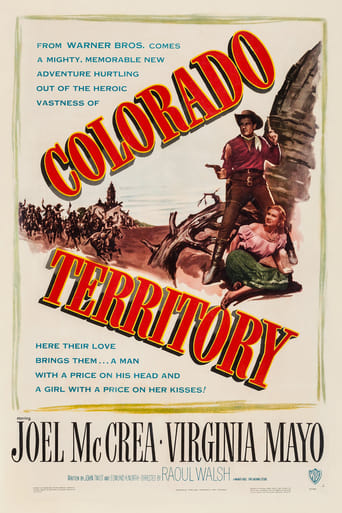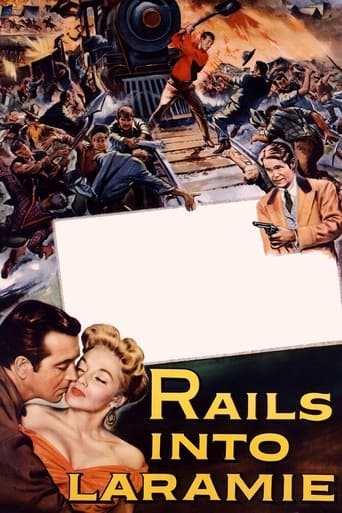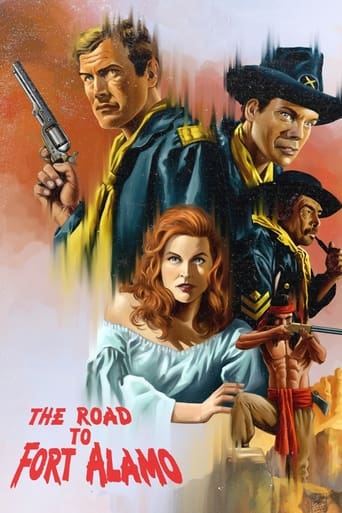
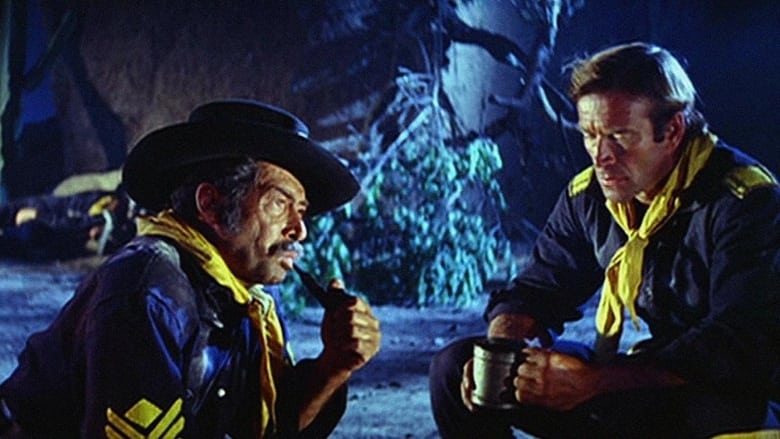
The Road to Fort Alamo (1964)
A lone rider comes across a dying soldier, the victim of an Indian attack, who gives him a paper authorizing the payment of $150,000 to the U.S. Army. The rider gathers some colleagues who disguise themselves as soldiers and who take the paper to a bank. They get the money but a shoot-out occurs, an old woman is killed, and the gang acrimoniously splits up. Later some members of the gang meet up with some real U.S. Cavalry soldiers and together they must fight off new Indian attacks.
Watch Trailer
Cast


Similar titles
Reviews
The Road to Fort Alamo (1964) ** (out of 4)Solo rider Bud Massadey (Ken Clark) comes across a Calvary massacre. A dying man gives him a paper payment of $150,000 that is to be paid to the U.S. Army. Bud teams up with a gang to get the money but he's double crossed by a card cheat. Soon Bud and his partner are rescued by another Calvary and sure enough he eventually catches up with the cheat.Mario Bava's THE ROAD TO FORT ALAMO is a pretty bland and boring Spaghetti Western that really doesn't have too much going for it. The Italian director was hitting a very high mark during this point of his career and it's easy to call this the least entertaining movie he made during this period. It's really too bad that this movie seems to have been a "director-for-hire" project as there's just not too much life here.Technically speaking, the film is certainly well-made and it appears that Bava got the job done. That job was getting the film completed without it going over budget. The film was obviously shot with a shoe-string budget and the director at least manages to make it look very professional. I thought the costumes were terrific and Bava at least managed to make the atmosphere seem as if you were back in this era.With that said, the story itself was just rather boring and none of the characters were all that interesting either. Heck, I'd go even further and say that the entire film was just rather bland to the point where you didn't care about anything that was going on. The performances were okay for the most part but none of them really jumped off the screen to grab your attention.
I think the thing that impressed me the most about Mario Bava's first spaghetti western outing here is how utterly pedestrian most of the proceedings were. Another distinguished commentator here has it right: This is the Italo western boys before the spaghetti idiom was truly established dressing up in their snappy cavalry duds & playing cowboys and Indians just like we used to do out at the sandlot near my cousin's summer house, only we didn't have such nice costumes.Ken Clark is a decent enough he-man leading heroic noble Shatterhand type, apparently roaming the west looking for trouble to straighten out. He finds it when a young novice finds himself taken by a card shark (the priceless Gerard Herter, Max from CALTIKI) and the two have to fight their way out of town & take up with a band of rogues who are targeting a bank to knock over. For reasons that escape me they find themselves mistaken for cavalry officers and join up with a U.S. Army element sent to the region to pacify the local Indian tribes so that the nice Caucasian people can build towns, railroads, brothels, and prosper without having to take the local Natives into consideration.It's pretty much the usual stuff for a low budget early 1960s western and indeed the story is decidedly lacking on the traditional spaghetti western histrionics, which many fans may be disappointed by. I however got a kick out of seeing Mario Bava constrained to a pretty straight forward story, complete with a heroic ride to the rescue at the end with the bugles & everything. If it sounds like a let down, students of Bava's unique visual style will actually be pleased with a series of nighttime scenes obviously filmed on a sound stage with that traditional Bava artsy minimalism emphasizing color and texture over rugged authenticity. This was made in the period before Sergios Leone and Corbucci more or less invented the spaghetti aesthetic, qualifying it more as a Euro western than a proper spaghetti outing. The film is also somewhat unique in that like Joe Lacey's FURY OF THE APACHES it actually involves the Native American peoples -- albeit somewhat clumsily and in a stereotypical fashion -- rather than swarthy Pistoleros shooting at Clint Eastwood's mule.I found it to be a fascinating movie perfect for a snowed in Saturday afternoon, though some may question how convinced Bava was of his own artistic vision for the movie. It's more sort of a compromise between his KILL BABY KILL cinematics and traditionalist Oater mentalities, with some truly stunning shots framed when seen in the proper widescreen ratio. The one thing I kept thinking is that here is a surprisingly ordinary low budget western that's been photographed like a Gothic study in spots, and the rather bloodless nature of the goings on mean that it's a rare example of an Italo western that was meant for all ages rather than a grim cartoon for adults. I kind of like it, and found it a much more rewarding viewing experience than Bava's 1970 final spaghetti ROY COLT & WINCHESTER JACK, though fans of the genre will probably prefer his NEBRASKA JIM. 6/10
"La strada per Fort Alamo" was shot in Italy, not in Spain like most Italian westerns. Director "John Old" alias Mario Bava was obviously influenced by the John Ford classics such as "She Wore A Yellow Ribbon", all just in a much cheaper B-movie style; it has almost nothing in common with the typical "Django pays for your funeral" kind of western. This movie has a good script with good dialogs; it's about a bandit who has to pose as an army officer after he got caught wearing a stolen uniform. When Indians attack, he gets opportunity to show he is a brave good guy. One word to the disappointed Bava fans: surely the master had to earn a living, too, and this is what he did for it. You don't shoot masterpieces like "Danger: Diabolik" or "Mask of Satan" every week. More important than such comparisons is that "La strada per Fort Alamo" is a good quality western in a traditional way, and if you don't expect more than that, it's well worth watching.
I've only seen each of the 3 Bava spaghetti westerns once (neither among his best work or his preferred genre), but I disagree with many people who considered Nebraska Jim to be a better film. Strictly from an entertainment sense, Arizone Bill (La Strada per Fort Alamo) held my interest noticeably better (though admittedly the copy of Nebraska Jim that I saw had severely distraction issues with audio). While Nebraska Jim seemed like a mostly cookie cutter extended western TV show episode you'd expect to see on American TV, Arizona Bill was more like a 2nd rate Good Bad and Ugly wannabe with its stolen civil war funds plot line and a group of criminals that ranges from a couple of more 'decent' people who are criminals to outright despicable violent ones. It was just slightly different enough to make it more interesting to me and it felt more like a Bava film. Maybe if I rewatch these films a few more times I'll notice things I've overlooked which will explain others' preferences, but I'm a bit skeptical that that will happen.It's not the greatest or most original film, but it kept me entertained and my biggest complaint is with regards to the 'romantic' subplot and its cheesy accompanying music (at least on the copy I saw, I'm not sure if it was or wasn't the original music used). Bava isn't always at his best when trying to provide romance/love interests to his films. Black Sunday (La Maschera del demonio) is IMHO the quintessential Italian Gothic horror film and a favorite of mine, but even his admirers have to admit that in that great film, the 'undying love' of the young Dr. Gorobec for Katia -- whom he has just met one day previous -- is a bit silly and one-dimensional and at times almost laughably overly melodramatic. I took off one point for the botched romance portions of Arizona Bill, though I did like it overall more than Nebraska which ended up with the same 5/10 score from me.The copy of the film I saw was an English language widescreen version from an old somewhat glitchy videotape source with a runtime closer to the USA or German cuts. I'm not sure what was excised from the original 90 minute cut listed on IMDb and maybe when TL's big Bava book comes out it will tell us what is or isn't missing from the cut I saw, but I hope one of the cult DVD companies (like Image, Anchor Bay or Blue Underground) pick up both this title and "Nebraska Jim" sometime in the near future to provide Bava's fans with a good legitimate uncut DVD release with the best transfer possible considering whatever film elements exist. I'm sure the underrated director's fans would welcome quality releases of all his films, even the lesser known and hard to find ones where Mario took over directorial duties from a previous director leaving a project.


